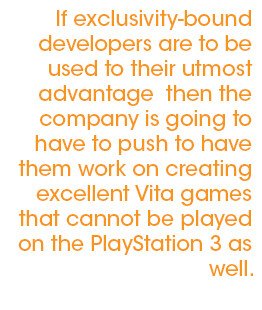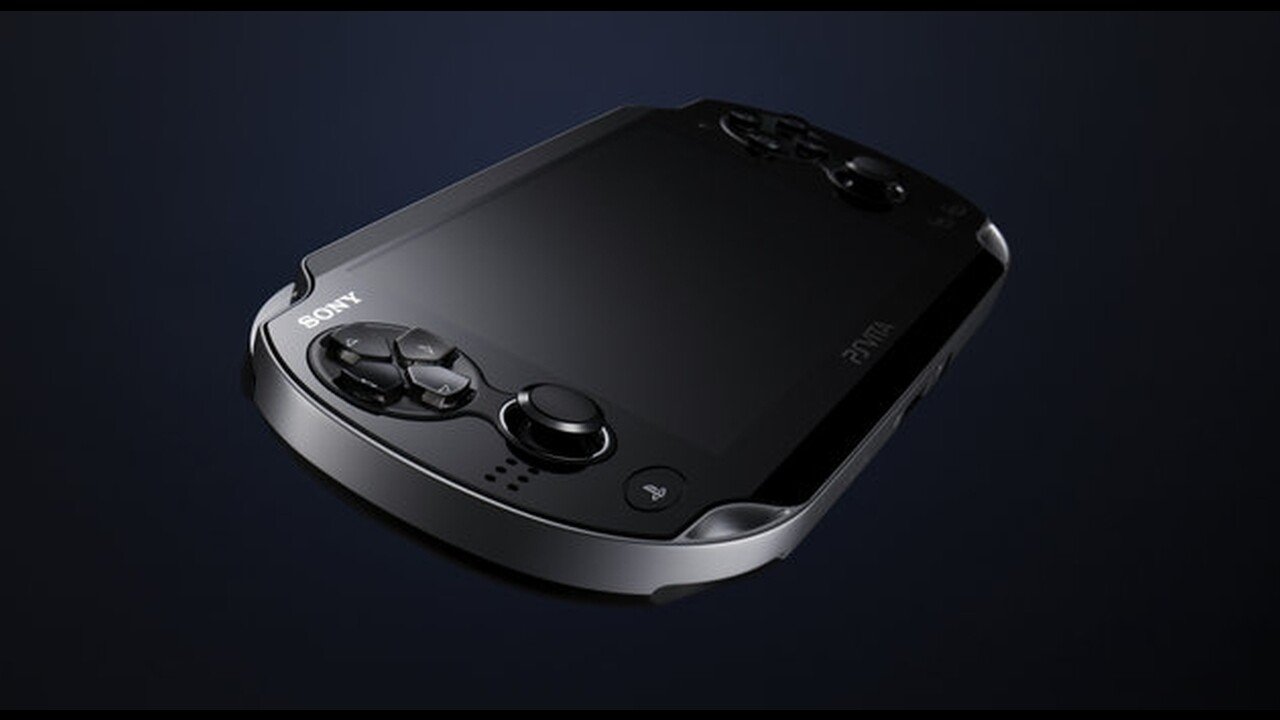The PlayStation Vita is a very good system.
It is also a system that, less than a year since its launch, has a very uncertain future. This isn’t just my opinion. A recent article from Joystiq reported on the Vita’s lacklustre sales performance, finding that the portable has sold only 2.2 million units worldwide since its launch and comparing that number with the troubled Nintendo 3DS’ 2011 6.68 million sales figures. It’s also worth pointing out that, while Nintendo’s handheld has been on the market longer, it still managed to sell 1.41 million more units than the Vita’s current 2.2 million in a handful of days following its release.
This isn’t good for either Sony or Vita owners.
I picked up the system on its release day, wary of buying any piece of technology when it first hits the market, but encouraged by the decent line-up of launch games and glowing impressions of the hardware itself. For the first few weeks it seemed like I had made a good choice. Uncharted: Golden Abyss was pretty good, there were Rayman Origins, Touch My Katamari and Lumines: Electronic Symphony to check out and a few promising titles like Gravity Rush and the Mortal Kombat port to look forward to.
Now it’s nearing the end of August and there are only a few games on the horizon that seem worth anticipating. Worse, aside from a seemingly apologetic Gamescom showing, Sony seems to have only a passing interest in keeping the Vita alive. All of this takes a lot of shine off a portable that seemed packed with plenty of potential.
 The beautiful screen, excellent control scheme and relatively beefy graphics capabilities make the Vita a system that should be attracting developers. With sluggish sales, though, this may never end up happening. A multi-platform games industry will always mean that developers will concentrate their efforts on creating software for systems with high adoption rates (unless they’re under an exclusivity contract), but the Vita simply isn’t owned by enough potential game buyers to warrant further third-party efforts. The only way to fix this situation, of course, is to get more Vita owners on board. This paradox — developers who aren’t enticed to make games for a small market and a small market that won’t grow because there aren’t enough good games — is only being exasperated by Sony’s baffling business decisions.
The beautiful screen, excellent control scheme and relatively beefy graphics capabilities make the Vita a system that should be attracting developers. With sluggish sales, though, this may never end up happening. A multi-platform games industry will always mean that developers will concentrate their efforts on creating software for systems with high adoption rates (unless they’re under an exclusivity contract), but the Vita simply isn’t owned by enough potential game buyers to warrant further third-party efforts. The only way to fix this situation, of course, is to get more Vita owners on board. This paradox — developers who aren’t enticed to make games for a small market and a small market that won’t grow because there aren’t enough good games — is only being exasperated by Sony’s baffling business decisions.
Sound Shapes, one of the Vita’s most interesting titles, was originally meant to be released only on Sony’s portable. The highly inventive videogame seemingly designed with touch screens and portability in mind instead, inexplicably, came out on PlayStation 3 as well. While I’m happy that more people will now be able to enjoy Sound Shapes, Sony’s last minute decision to make it a multi-platform title nullifies one of the big reasons for potential buyers to invest in a new system. At Gamescom, Sony went even further to promote a future where Vita games would connect with the PlayStation 3 in many cases.
This type of connectivity is great for those, like myself, who own both systems, but an iffy business decision for a company attempting to get their new handheld selling. If exclusivity-bound developers are to be used to their utmost advantage (and Sony does have publisher control over some truly fantastic studios) then the company is going to have to push to have them work on creating excellent Vita games that cannot be played on the PlayStation 3 as well.
Following Nintendo with a substantial price cut would maybe go some way toward encouraging some better sales as well. The 3DS’s dismal launch line-up and its technology being only a minor improvement on the original DS may have been responsible for an unimpressive release sales (not the Vita, as we say before, did any better), but, since then, a lower price and Nintendo’s enthusiasm for discussing 3DS exclusives have helped it to find its feet. If Sony hopes to follow suit it will have to take notes from its market rival. Otherwise I, and the other handful of Vita owners out there, won’t be left with much more than a portable Netflix player.
***
Reid McCarter is a writer, editor and musician living and working in Toronto. He has written for sites and magazines including Kill Screen, The Escapist and C&G Magazine. He founded, writes and edits the videogame blog digitallovechild.com and is Twitter-ready @reidmccarter.




